SingaporeMotherhood | Baby & Toddler
October 2023
Born Deaf, My Child is Now Breaking Barriers in Music

It may sound strange, but science has proven that deaf people can appreciate music too. They do so by sensing vibrations in the part of the brain that processes hearing. And for 17-year-old Wong Hon Wei, who was born deaf in both ears, music plays a major role in his life. He not only completed his ABRSM Grade 8, but even got into the competitive Music Elective Programme (MEP) at Anglo-Chinese School (Independent), successfully graduating last year. And it all started because his mother, Janiz Goh, refused to let a misconception hold her child back.
According to Janiz, who’s currently senior assistant director at a university in Singapore, it took a while for her to get pregnant. “And of course, it happened when I least expected it. I was 32, had just embarked on my MBA, and was managing a new, rather sizable team at work. Nonetheless, I was elated!”
My Pregnancy Journey
“The thought and experience of growing a new life inside of me were both exciting and somewhat fear-inspiring. Viewing the ultrasound images and hearing my son’s heartbeats — they sounded like horses trotting! — were vivid yet surreal.
Initially I thought I was blessed with no morning sickness, but alas, it came with my second trimester. Given the nausea, pregnancy-related fatigue, and stressors from my studies and job, I eventually gave up pursuing my MBA two modules in.
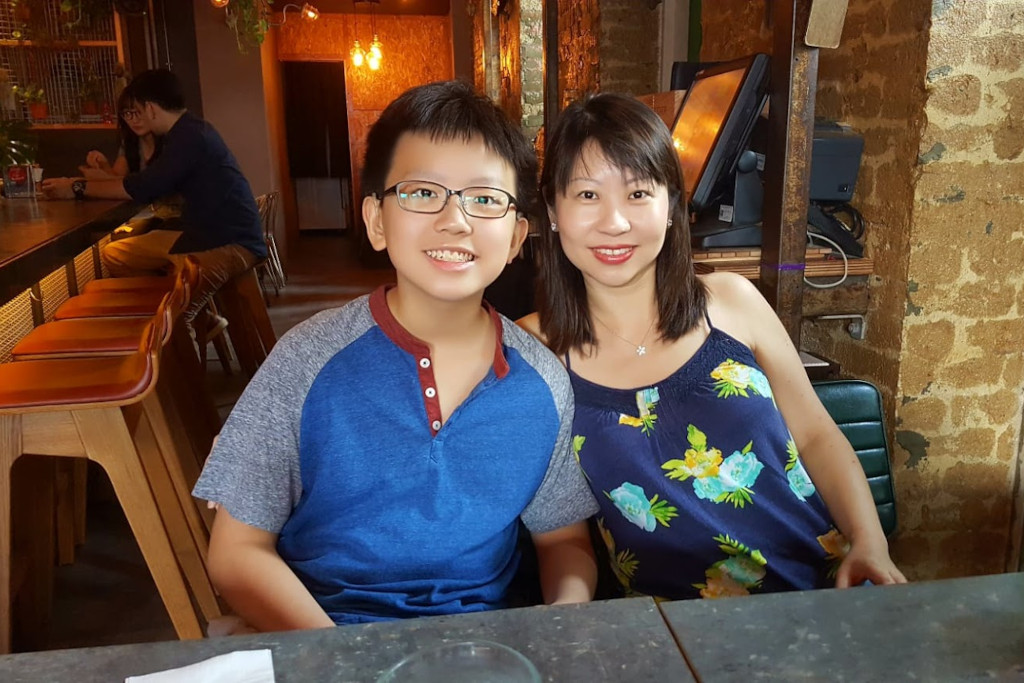
Things started getting more intense in my third trimester. I developed symphysis pubis dysfunction, which the doctor attributed to my large foetus. The stabbing and wrenching pain in my pelvic region was so excruciating that I struggled to walk despite wearing a maternity belt for support. The nights were equally challenging, as I couldn’t even sit up to go to the toilet without my husband’s help.
The day of delivery was no less traumatising. My baby was an ‘overstayer’ and had to be induced. I opted for an epidural. But after 11 failed attempts during my contractions, the anaesthesiologist apologised for his failure to find the epidural space. Eventually I made it through natural birth on pethidine injections, laughing gas, and most importantly, my husband, who ‘sacrificed’ his upper arm for the cause.
In contrast, my son — all 4.438 kg of him! — made his entry into the world calmly and quietly. There was basically pin-drop silence when my contractions stopped. Even upon the ceremonial slap for him to draw his first breath, Hon Wei uttered only an “ehh”! No crying, no drama, and according to my husband, he was scanning his surroundings while they cleaned and weighed him.
(See also: COMMON PREGNANCY ACHES AND PAINS YOU SHOULD NOT IGNORE)
My Baby Could Not Hear
The nurse broke the news very gently — Hon Wei did not clear the Universal Newborn Hearing Screening in one ear. I remember her saying that it didn’t mean that my baby definitely had a hearing impairment, because fluids in the ears of some newborns can take a while to drain. They would repeat the test and carry out further investigation if necessary.
As my husband is a healthcare professional and I’m also in the health education industry, we believed that our son was in good hands.
I remained in the ward for eight days due to anaemia, so I received prompt updates about Hon Wei’s repeated hearing tests. On some days, it would be either ear that failed the test, and one time, both ears failed. I was dismayed yet hopeful for the eventual outcome.
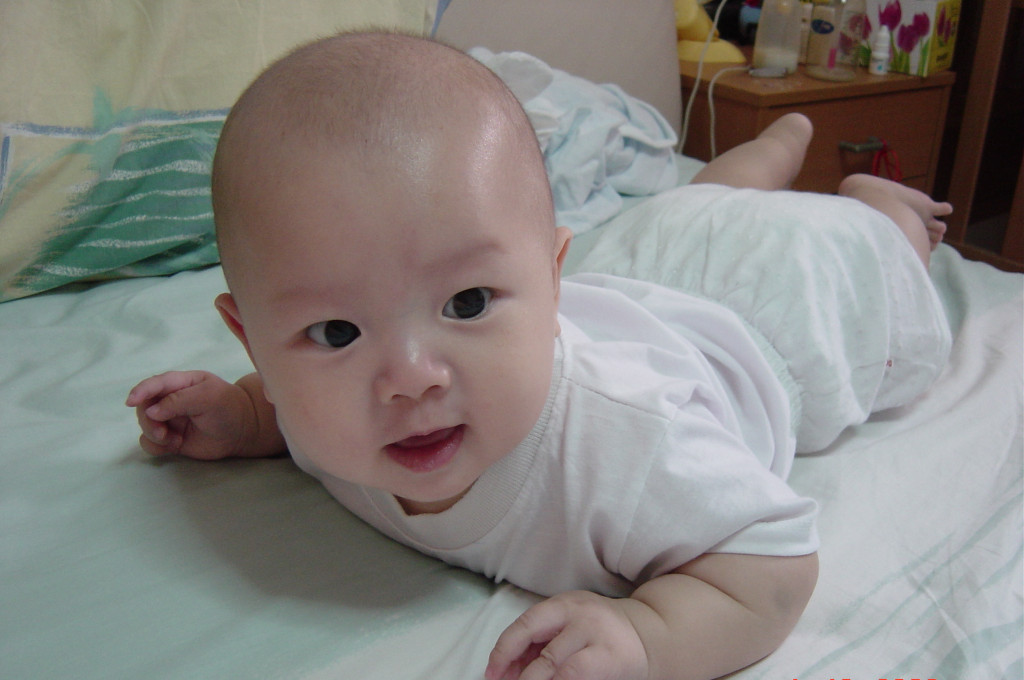
But on the day of discharge, the same nurse confirmed that Hon Wei required further investigation with the Otorhinolaryngology (ORL) department.
It was a big blow to me. Up until then, my life had been pretty ‘perfect’, but now my child was born ‘imperfect’. I went through all stages of the grieving cycle in a nonlinear fashion, my internal videotape of ‘whys’ and ‘how comes’ constantly playing on loop.
Then my husband’s clinician friend offered a comforting perspective. ‘Hearing loss is like having myopia,’ she said. Just like we need glasses to see better, our son would require hearing devices to help him hear better. Or as one of my colleagues pointed out, hearing loss is but a small health issue in the larger scheme of things. ‘At least it can be fixed,’ he said candidly, ‘you know, some conditions cannot be fixed.’
(See also: HEARING LOSS IN BABIES & CHILDREN – THE SILENT EPIDEMIC)
Large Vestibular Aqueduct Syndrome (LVAS)
After several rounds of tests, the ORL specialist diagnosed Hon Wei with LVAS. It’s a sensorineural type of hearing loss that is not only irreversible, but could only progressively deteriorate. The hearing loss in his left ear was classified moderate-severe, while his right ear was severe-profound.
Heeding the specialist’s advice for early intervention for speech development, my husband and I decided to take action. By six months, Hon Wei was bilaterally (both ears) fitted with hearing aids. Following this was the start of weekly Auditory Verbal Therapy (AVT) sessions. It was a tiring phase because the frequency of the sessions aside, we had to practise the exercises at home.
The specialist also suggested cochlear implant surgery as an option for Hon Wei, particularly for his right ear. It would enhance his hearing, and thus his speech development. However, we were told that the cochlear processor might alter sound production, and cochlear implant recipients are not able to appreciate music, so we adopted a wait-and-see attitude.
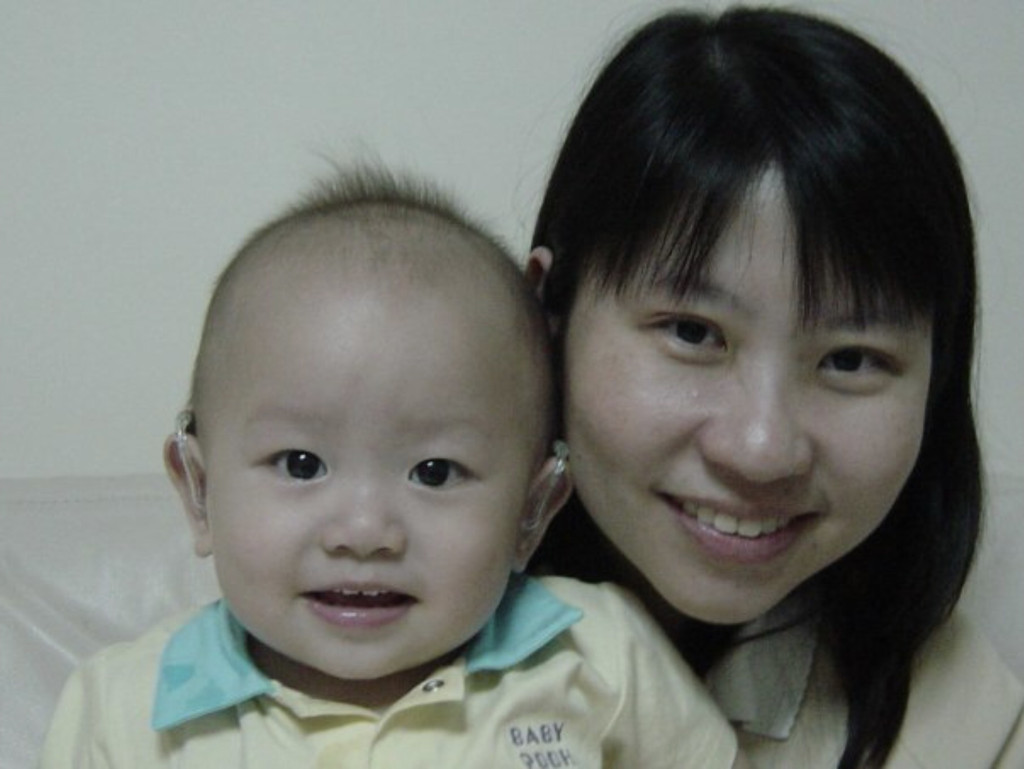
Otherwise Hon Wei was a rather easy baby, except for colic early on, and also a history of nosebleeds. These episodes usually happened in the wee hours, and as first-time parents, they were truly traumatising. Besides being visually disturbing, we often had to rush him to the Emergency Department while I tried to halt the bleeding by pinching his nose as he fought and cried. Thankfully, his ORL specialist ruled out any sinister diagnoses.
His LVAS also led to episodes of vertigo whenever he caught the flu. When he was smaller, Daddy could still carry him to the doctor, but as he grew bigger, we had medication on standby to ease the dizziness before heading out.
Challenging Times
For myself, as a soft-spoken person, communicating and engaging with my son was challenging at first. I had to learn to gesticulate more and unlearn the habit of mumbling with small lip movements. I also worried a lot about his ability to look after himself, his future, and the impact on his self-esteem when he reached school-going age. Sadly, this wasn’t unfounded.
Once I was carrying Hon Wei (he had translucent, orange-coloured hearing aids) and waiting at our lift lobby. An elderly man peered closely at Hon Wei’s ears and pointed, saying to his wife, ‘This one, deaf one,’ before walking away. I was so upset that I burst into tears when I reached home.
(See also: “MUM, WHY IS THAT KID SO WEIRD?” – A TEACHING OPPORTUNITY)
Another time at a restaurant, someone at the next table spotted my son’s hearing devices. Within seconds, the entire table turned to stare, started whispering among themselves, some pointing at him. One was even visually checking my ears and my husband’s to see if we also wore hearing devices! Such encounters weren’t uncommon wherever we were, from shopping malls to public transport. We refer to these people as ‘starers’ and learnt to ignore them.
When I sent Hon Wei to enrichment classes, some parents would either avoid us, cast judgemental looks at us, or discreetly pull or move their children behind them when my child approached theirs. It was unbearable at the beginning; it made me feel like my son was a virus or something!
Hon Wei Gets a Cochlear Implant
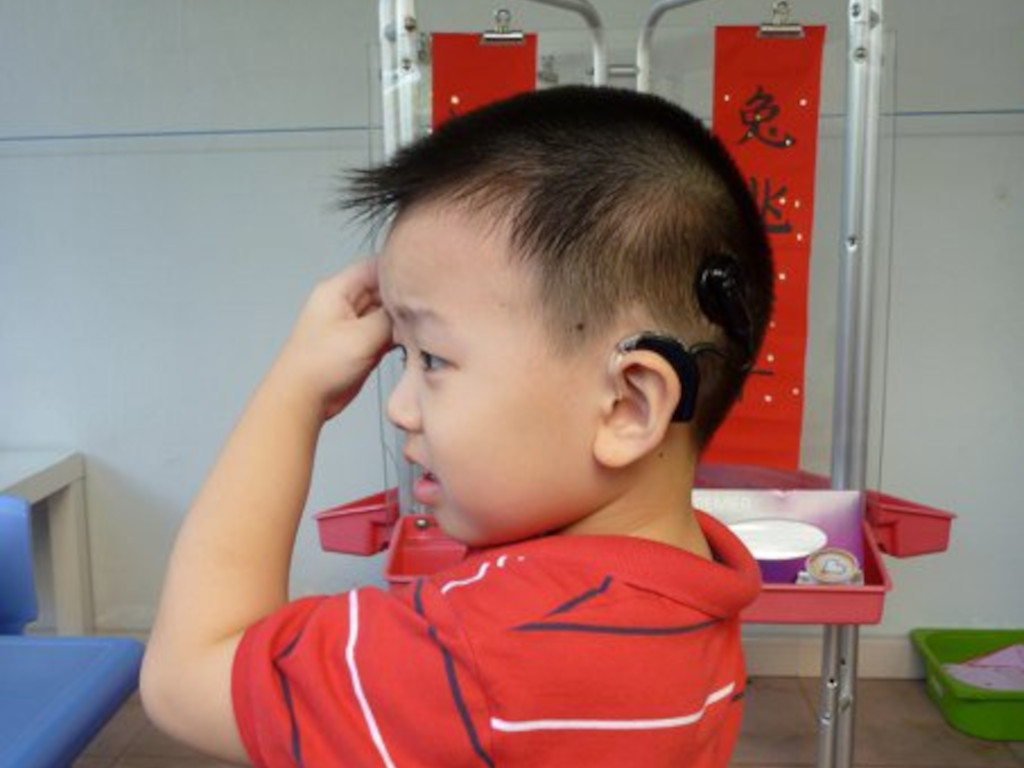
Just after Hon Wei’s fourth birthday, his ‘better’ ear started deteriorating, so the cochlear implant surgery became a necessity. There was a healing process of three weeks before the ‘switch-on’ day. I remember that morning vividly. When the audiologist flipped the switch, Hon Wei immediately burst into tears. He cried out repeatedly, “My eyeball is coming out! Mummy, my eyeball is coming out!”
My heart sank. Hon Wei completely rejected the cochlear processor while at the clinic. We continued to cajole him when we got home, but to no avail. However, to our surprise, by that same night, Hon Wei reached out for the device himself. He started wearing it for short periods at first, then gradually increased the duration in the following days. What a relief!
Although we had to undergo more AVT, it was the best decision ever because his speech became so much clearer. For example, Hon Wei previously called ‘Daddy’ as ‘Gaggy’, and he would say ‘twinkle twinkle little tar’. After the implant and AVT, his pronunciations were no different from that of a hearing child.
Even so, Hon Wei faced a fair bit of bullying in primary school. A kid sitting behind him on the school bus poured a bottle of water over his head and he shivered in the aircon bus until he got home. Schoolmates would snatch the external cochlear processor that magnetically attached to his head, and he had to chase after them to get it back or he wouldn’t be able to hear.
In upper primary, his classmates would exclude him from group work. It was heartbreaking to hear him lament that he and a few other classmates were labelled the ‘leftovers’ — they often ended up as a project team instead.
(See also: HELP YOUR CHILD COPE WITH BULLYING)
My Musical Child
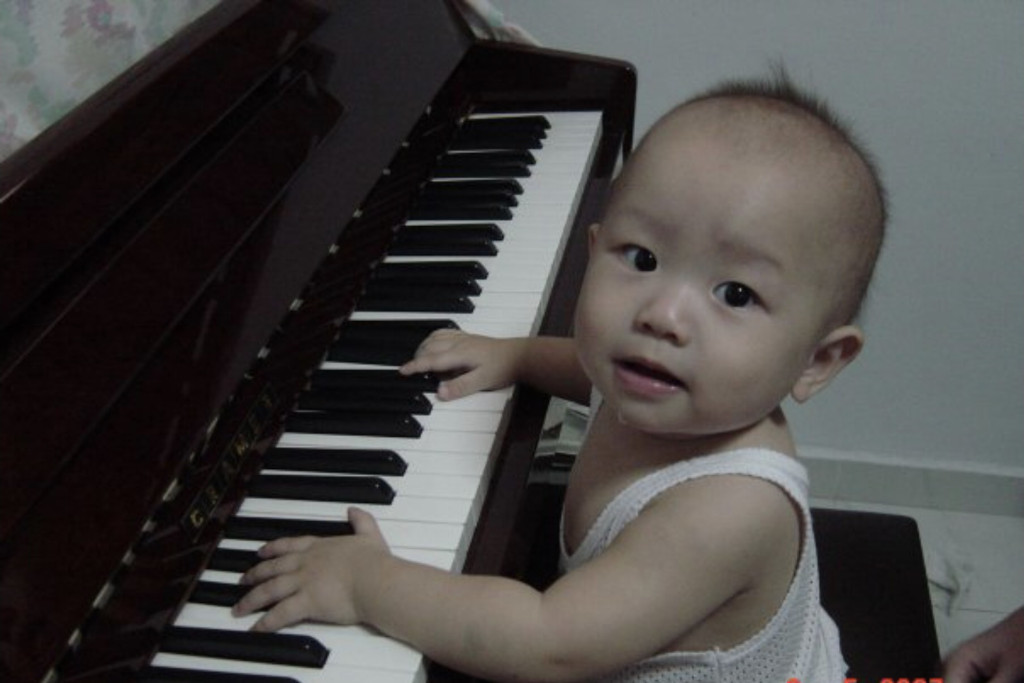
As a music lover myself, I often sing and play music at home. I began noticing that Hon Wei would bob his head to music, sometimes humming in pitch. When he was about a year old, he started to pretend-play as a pianist.
I decided to enrol him in Kindermusik’s Music & Movement classes when he was two. He thoroughly enjoyed it, often smiling and chuckling along with the percussive instruments and movement activities.
To support his growing interest in music, I pushed the envelope by enrolling him in Yamaha group classes, so that he could develop social skills while learning to play an instrument. It turned out to be positive because he loved playing on the Electone and piano. I subsequently discovered he has perfect pitch and enjoyed playing in an ensemble.
Upon his music teacher’s advice, Hon Wei also embarked on the ABRSM (Associated Board of the Royal Schools of Music) pianoforte individual piano classes, over and above the group classes. He learnt relatively fast and well. That also enabled him to be accepted into the Music Elective Programme at ACS(I), where he read music as an ‘O’ level subject.
Hon Wei is currently in junior college and focusing on his ‘A’ levels next year. He intends to continue pursuing music as a hobby, and has a specific interest in music composition.
My rebellious self said that we should try to defy the notion that cochlear implants are meant for speech enhancement. We were also told that CI recipients cannot really appreciate music. Guess I can debunk that myth now that Hon Wei has successfully completed ABRSM and MEP!
Proud Mama
I am immensely proud of my son’s achievements in his 17 tender years. And also of the significant role I have played in his journey. My AVT efforts have enabled Hon Wei to speak clearly. Most of my friends didn’t even notice his hearing impairment until I pointed out his ear devices!
I helped him to develop and strengthen his memory by using flashcards that I both bought and made myself. I practised that with him at least four times a week from the time he was 10 months until he was five years old. It was a commitment I made regardless of how tired I was after work.
Throw in regular AVT sessions and occasional hospital stays, plus a demanding full-time job requiring weekend work. There were moments when I felt like a single mum juggling my son’s appointments and schedules, even though my husband would pitch in when he could. Also being a single child myself, my parents occasionally required my attention for various issues. It was simply exhausting at times.
(See also: DO YOU HAVE PARENTAL BURNOUT?)
Helping him through challenges along his music journey was another big achievement because his musicality and accomplishments have surpassed many with normal hearing.
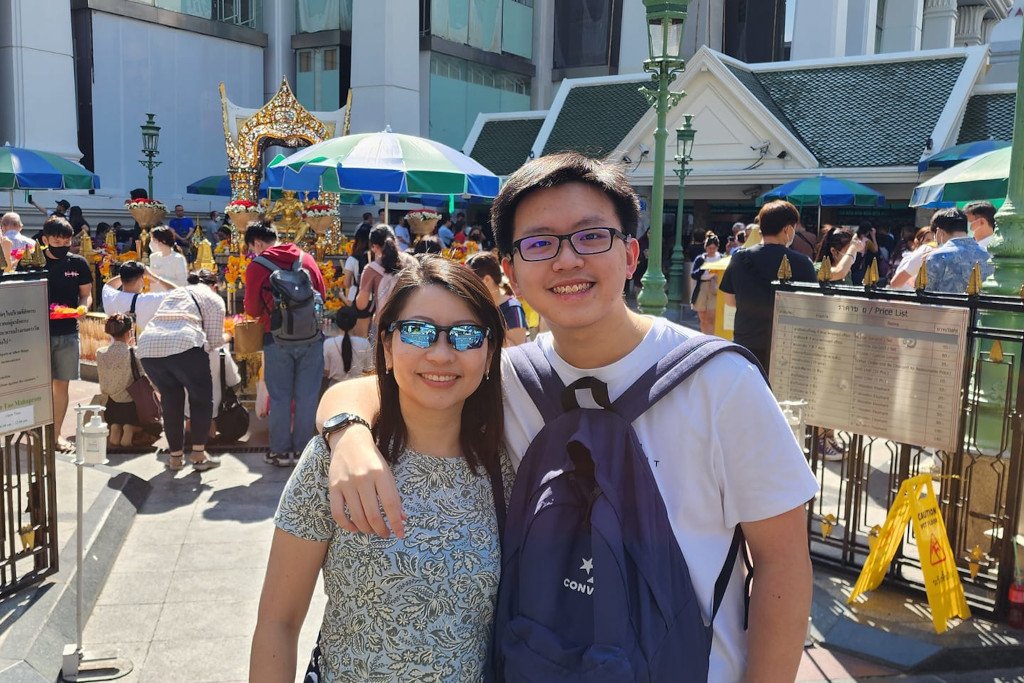
As one who has taken the hearing impairment rollercoaster ride, my husband and I, together with Hon Wei, have also participated in talks and support groups with young or new parents with hearing-impaired children. We hope to share our story to inspire these parents to not lose hope or give up on their children.
Going forward, I will contribute in small ways to share my knowledge about hearing with anyone who wishes to know. And I will continue to support my only child in all his endeavours for as long as I can.”
All content from this article, including images, cannot be reproduced without credits or written permission from SingaporeMotherhood.
Follow us on Facebook, Instagram, and Telegram for the latest article and promotion updates.





